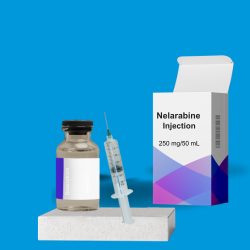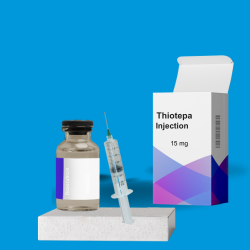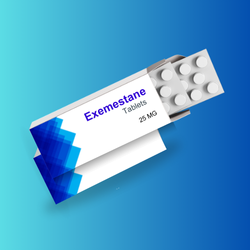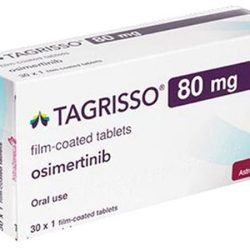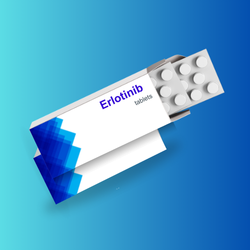Description
Uses of Medicine:
Nelarabine 250 mg/50 mL is a nucleoside metabolic inhibitor. It is classified under antineoplastic agents. Patients, Healthcare Professionals (HCP), or Hospitals can buy Nelarabine 250 mg/50 mL Injections online from India through THE INDIAN PHARMA (a trusted Nelarabine Supplier, Exporter, and Contract Manufacturer in India) for the management and treatment of:- T-cell acute lymphoblastic leukemia (T-ALL)
- T-cell lymphoblastic lymphoma (T-LBL)
Nelarabine 250 mg/50 mL is a specialized antineoplastic (anti-cancer) medicine. It is used primarily in the treatment of certain blood cancers, mainly T-cell acute lymphoblastic leukaemia (T-ALL) and T-cell lymphoblastic lymphoma (T-LBL). These types of cancer are violent in nature, and they adversely affect the blood and lymphatic system. It is treated with the help of Nelarabine, which inhibits the synthesis of DNA, which in turn stops the growth of the cancer. This drug becomes helpful when all other alternatives have been exhausted or there is a clear need to focus specifically on T-cell malignancies.
This chemotherapy drug is given under strict medical supervision in a hospital or oncology unit. Its strength requires careful dose coordination, hence, it is frequently given in cycles with breaks in between. Specialists who closely observe the patient throughout the treatment process usually prescribe Nelarabine, which is available in injectable form. Though effective, it requires careful planning due to the impact it has on healthy cells as well.
Before starting treatment with Nelarabine 250 mg/50 mL, patients undergo thorough medical evaluations. This includes checking liver and kidney function, neurological health, and blood cell levels to ensure the body can tolerate the drug. Patients with a history of serious nervous system issues or previous reactions to chemotherapy may not be suitable candidates. The medical team may adjust the dosage or use additional medications to reduce side effects and support the body during treatment.
Special care is required for pregnant or breastfeeding women, as Nelarabine 250 mg/50 mL can pose a serious risk to the unborn baby or infant. Patients need to follow their healthcare provider’s advice, attend regular check-ups, and report any unusual signs and symptoms. Adhering to medical guidance helps minimize side effects and improves the probability of the best treatment outcome.
Dosage & Side Effects: Adult Dosage:
The recommended adult dose of Nelarabine is 1500 mg/m² administered intravenously over 2 hours on Days 1, 3, and 5, repeated every 21 days. Administer this therapeutic drug undiluted.Pediatric Dosage: The recommended pediatric dose of Nelarabine is 650 mg/m² administered intravenously over 1 hour daily for 5 consecutive days, repeated every 21 days. Administer this medicine undiluted.
The recommended length of treatment for both adult and pediatric patients has not been clearly established. In trials, this treatment was continued until there was evidence of disease progression, the patient experienced unacceptable toxicity, the patient became a candidate for hematopoietic stem cell transplantation (HSCT), or the patient no longer continued to benefit from treatment.
The most common side effects of Nelarabine in adults and pediatric patients are anemia, neutropenia, thrombocytopenia, nausea, diarrhea, vomiting, constipation, fatigue, pyrexia, cough, dyspnea, and leukopenia.

